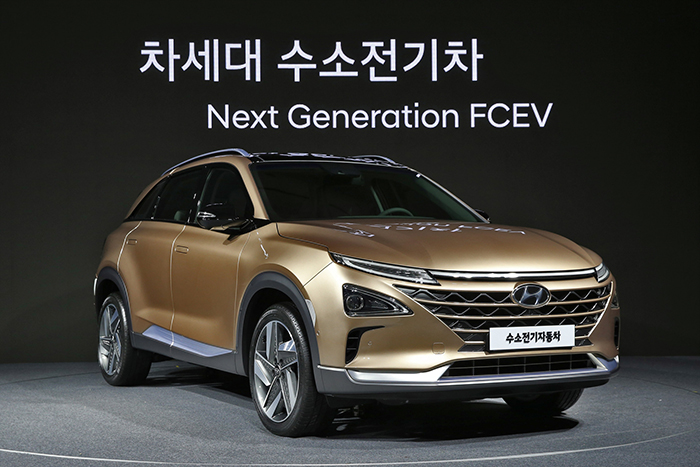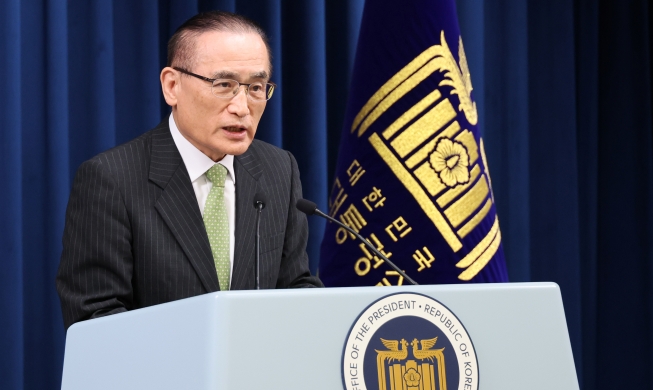
Hyundai Motors unveils its next generation fuel cell electric vehicle (FCEV) in Seoul on Aug. 17. (Hyundai Motors)
By Min Yea-Ji and Lee Hana
Hyundai Motor Group unveiled its next generation fuel cell electric vehicle (FCEV) on Aug. 17 at a clean energy concept house built on the banks of Seoul's Hangang River.
This new electric vehicle technology uses compressed hydrogen and a fuel cell to produce electricity that powers an onboard motor. Most of these vehicles are classified as zero emission cars that only emit water and heat. As such, they are seen as the next generation of environmentally friendly vehicles.
Hyundai announced that it had significantly upgraded its hydrogen fueled battery system in four major areas, including efficiency, performance, durability and storage. The automaker said that the system efficiency had increased from 55.3 to 60 percent, and that maximum output had gone up by 20 percent compared to previous standards. The engine is now able to generate an average horsepower of 163, which is comparable to a diesel engine. The production version of the new fuel cell SUV is expected to have a driving range of more than 580 km per charge under Korean standards, the automaker said.
Hyundai will reveal the new vehicle's name and major specifications at the Consumer Electronics Show (CES) in Las Vegas in Jan. 2018.
At the day's media event, the automaker announced that it would expand its ecofriendly car lineup from 14 to 31 vehicles by 2020. The current lineup includes six hybrids (HEV), four plug in hybrids (PHEV), three electric vehicles and one fuel cell vehicle. According the latest roadmap, the lineup will be expanded to include 10, 11, 18 and 2 of these models, respectively.
"A number of environmental issues, such as particulate matter pollution, have made people realize the importance of pushing for ecofriendly vehicles. Hyundai Motors will continue to play a leading role in the ecofriendly car market by developing new technologies that pave the road for the future of electric and fuel cell vehicles," said Lee Ki Sang, head of Hyundai's Ecofriendlly Vehicle R&D Center.
jesimin@korea.kr
